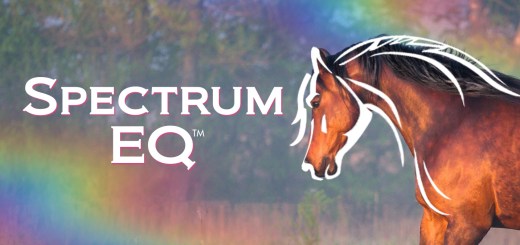
Lysine & Genetically Engineered Amino Acids
As most horse owners know, lysine is an essential amino acid for horses; common food sources for horses are legume hays, soybeans, spirulina, fenugreek seeds, brewer’s yeast, whey protein, and peas.
I wanted to find out how non-food sources of amino acids, particularly Lysine, were made. When I read a supplement label that has 3,000 mgs or more per serving, I know that the Lysine didn’t come from food. So how does the non-food form of Lysine get created?
In my forays down the rabbit hole to learn more about the production of amino acids, I stumbled upon a book called Basic Biotechnology, which I thought sounded benign but I quickly discovered that it not only illuminated the production of amino acids, but more critically it revealed the foundations of the genetic engineering components.
Genetic engineering you ask?
Yes. Many amino acids, including Lysine, are produced by a fermentation process that includes genetically engineered bacteria. It is through genetic engineering that bacteria (wild and those produced by mutagenesis) are in essence rebuilt to ensure high productivity of the final mutant.
The history of amino acid production began in Japan in 1908, when Dr. Ikeda, a chemist, isolated glutamic acid from kelp and caustic soda. This was the birth of MSG (monosodium glutamate). The breakthrough in the production of MSG came in 1957 when Japanese scientists isolated a micro organism by the species name Corynebacterium glutamicum. Until the advent of biotechnology and genomic techniques, classical strain development was used. Today it is this now genetically engineered bacteria that is used for Lysine production as well as L-threonine, L-methionine, and L-isoleucine.
The fermentation process itself is the chemical conversion of sugars into ethanol using yeasts, bacteria or a combination under anaerobic conditions. Fermentation as a food process and preservative process (wine, beer, kimche, etc) has been used for thousands of years.
Part of the fermentation process requires sugar, and with 1/3 of the world market for Lysine in North America, many companies producing Lysine are associated with the corn industry. Corn is one of the elements used as a substrate for the fermentation process of Lysine. Sugar beets are also used. As of 2009, approximately 86% of the corn grown in North America was genetically modified. As of 2010 nearly 95% of the total sugar beet acreage in the US was genetically modified, but a US district court revoked the approval of genetically modified sugar beets in August of 2010.
The European Union and Russia are the other two major sugar beet producers. Lysine made in the European Union from sugar beets is GMO free.
One of the major producers of Lysine is Archer Daniels Midland (ADM). The company was charged in 1996 with anti-trust penalties of over $100 million dollars by the United States Department of Justice for ADM’s price fixing conspiracy to raise the price of feed additive Lysine. Senior ADM executives were indicted on federal criminal charges for engaging in price-fixing in the international lysine and citric acid markets. Three of ADM’s top executives were sentenced to federal prison.
The US does not require labeling of genetically modified organisms so there is no way we consumers can tell if the Lysine in our commercial feeds or supplements is made using GE corn or sugar beets. Nor are there labeling requirements for the biotechnology (genetic engineering) of the bacteria used in the production of amino acids like Lysine. The National Organic Standards Report (1996) defined genetically engineered as “ made with techniques that alter the molecular or cell biology of an organism by means that are not possible under natural conditions or processes.”
Because the USDA and the FDA do not require country of origin on foods other than meat and some imported fruits and vegetables, we have no way to ascertain by reading a feed label or a supplement label where these ingredients come from. That is why I am so committed to keeping Country of Origin on the Biostar labels so that consumers can know where all our raw material comes from, before it gets to their dogs and horses.
Since most all of commercial lysine is made with genetic engineered bacteria and can also be made with additional genetically modified corn, consumers can go to whole food sources like alfalfa, spirulina, field peas or brewers yeast to provide this essential amino acid without the concerns of biotechnology and genome tampering.
Tigger








Thanks Martha for your posting. I was not aware of a possible link of lysine to Parkinson’s. That is very disturbing in deed.
tigger
I’ve been following a thread with lysine as a possible connection to my husband’s Parkinson’s Disease – long story. In my recent research I came to this page. I too have been reading about the fermentation of lysine using selected mutants or engineered bacteria. A close friend of mine is a horse breeder and was telling me of these issues in horses so this page kind of blew me away. Do you know that lysine is also added to wheat. Probably part of the recent serious problem with wheat for people. Our bodies know something is wrong. Anyway, I just wanted to say that there is someone else out here looking at lysine and amino acid production methods and I’m alarmed.
Thanks